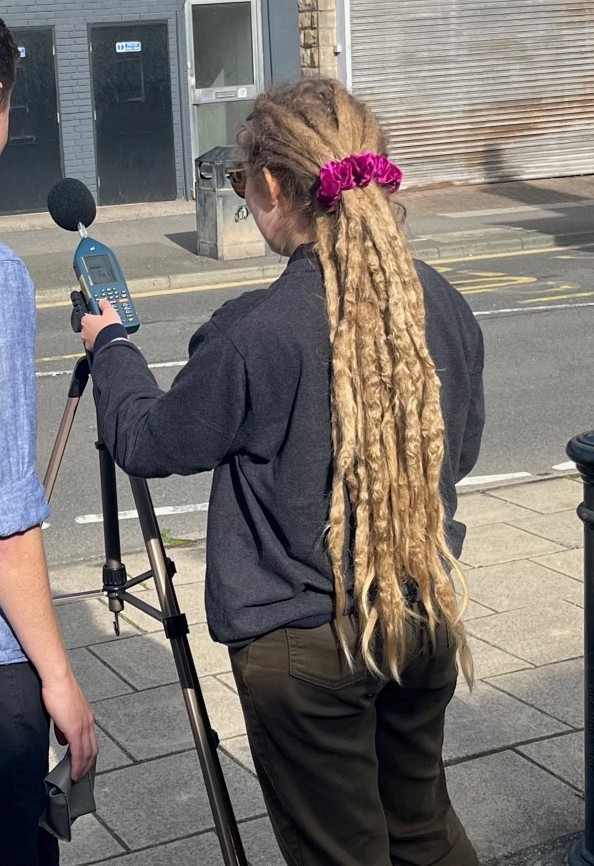Katie Salter

What is your PhD is about?
My PhD is looking at human response to noise from air source heat pumps.
Why is it important to do this research?
Thinking about heating might not sound very exciting, but how we heat our homes has a big impact on the climate – so decarbonising home heating is really important, and replacing gas boilers with air source heat pumps is a very effective way to do this. But we need to do it in a way that is sustainable, and that means thinking about the wider impacts of heat pumps – including noise. In my project I am looking at how people are affected by the noise from heat pumps, and how we can make sure that this doesn’t become a problem.
What does a Sustainable Sound Future mean to you?
A future in which we are able to make use of the technologies we need – using drones to provide essential medical supplies to remote areas, transitioning from fossil fuels to electrically powered heating and transport – without compromising our health and wellbeing by accepting excessive noise.
What were you doing before joining the CDT?
Before joining the CDT I spent five years working as an acoustic consultant – building acoustic models, working with architects and design teams made up of all sorts of different engineers, and a lot of standing with a sound level meter in strange places, often in the middle of the night.
Tell us a fun acoustic fact!
Bats use sound to locate their prey, but some moths have evolved a fancy trick to avoid capture – the surface of their wings is covered in a scaly metamaterial that changes how the sound reflects off the wings, and so makes it harder for bats to locate them..